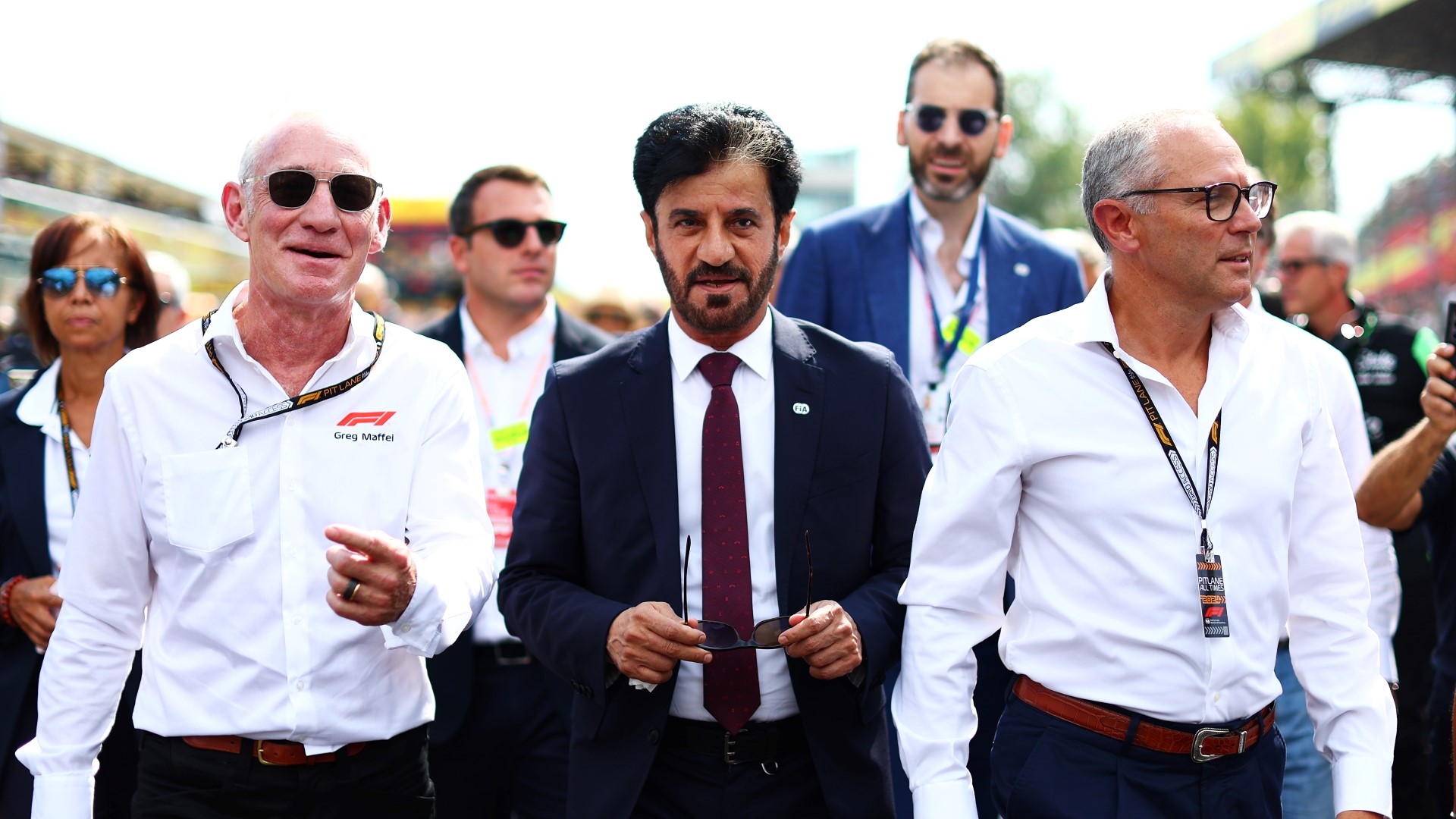The FIA's priority for much of the 2024 Formula 1 season was cracking down on drivers' foul language over the radio and in press conferences. The word fuck, it made clear, was no longer acceptable, though for Federation Internationale de l'Automobile President Mohammed Ben Sulayem's clear, dog whistle–laden stance on the matter—"We have to differentiate between our sport, motorsport, and rap music"—it was not formally codified until yesterday, Jan. 23. The new International Sporting Code recommends specific punishments for misconduct, defined as language or actions that reasonably be construed as either "offensive, insulting, coarse, rude, or abrasive," or threatening. Within any two-year period, a first offense would incur a €40,000 fine (around $41,000), a second offense would incur a €80,000 fine and a suspended one-month ban, and a third offense would incur a €120,000 fine, a one-month ban and deduction of championship points. It remains unclear what a fourth offense would entail.
A professional sports league having a codified swear jar is ludicrous at face value. Though governing bodies frequently do ludicrous things and operate on ludicrous assumptions, it remains a mystery how three swear words over the course of two years would be more damaging to the sport than suspending a driver—like, say, the notoriously potty-mouthed but four-time World Champion Max Verstappen—for a month. Verstappen's formal punishment for swearing in Singapore last year was mandatory community service. Charles Leclerc's punishment for swearing in Mexico was a €10,000 fine, half of which was suspended for a year.
Then again, any confusion here presupposes that rule change was made in the interest of the sport. But the implications of a one-month ban for saying "fuck" pale in comparison to the exact same punishment structure applying to "any words, deeds or writings that have caused moral injury or loss to the FIA, its bodies, its members or its executive officers, and more generally on the interest of motor sport and on the values defended by the FIA." In other words most, if not all, criticism from drivers directed toward the FIA in general—and Ben Sulayem in particular—can be penalized. The swear jar is only one part of a crackdown on driver expression, which further insulates the sport's governing body from oversight or basic criticism.
The new regulations come after the FIA changed several statutes that govern its ethics and audit committees in December. The committees had previously opened investigations into allegations that Ben Sulayem interfered in races in 2023, as well into his private office's finances and alleged establishment of a "President's fund" paid to parties that vote for the FIA president. Various figures involved with the investigations, including the former CEO, the former head of the audit committee, and the compliance officer who reported to the ethics committee, have either left the FIA or were fired. According to the BBC, the new statutes would require the president of the FIA senate's approval to open any investigation, and allowed the president of the FIA (namely, Ben Sulayem) to control the appointment of the head of the ethics committee. The president of the FIA's senate is Carmelo Sanz De Barros, a member of Ben Sulayem's leadership team.
To a certain extent, crackdowns on driver expression are not new, and predate Ben Sulayem's tenure. Shortly after Lewis Hamilton was specifically not investigated for wearing a shirt reading "Arrest the cops who killed Breonna Taylor" on the podium after winning the 2020 Tuscan Grand Prix, the FIA amended dress code rules to require the top three drivers to wear their race suits zipped up to their necks post-race. An earlier part of Ben Sulayem's stint as president of the FIA was marked by a prolonged battle, primarily with Hamilton, over whether drivers were permitted to wear jewelry within the car.
These new regulations, however, are certainly the most brazen and broad restrictions, affecting every driver, especially the reigning World Champion. They also, according to the BBC, apply to F1 team principals. The Grand Prix Drivers' Association, the trade union for F1 drivers, currently has "no comment on that matter for the time being." If the rules are to change, it would be dependent on the actions of the GPDA and the drivers, who were unofficially aligned behind Verstappen during the initial swearing saga. The drivers, after all, are perhaps the only party with any sway in this mess whose primary interests lie in the well-being of F1 as a competitive motorsport, rather than some glamorous, money-printing enterprise.






